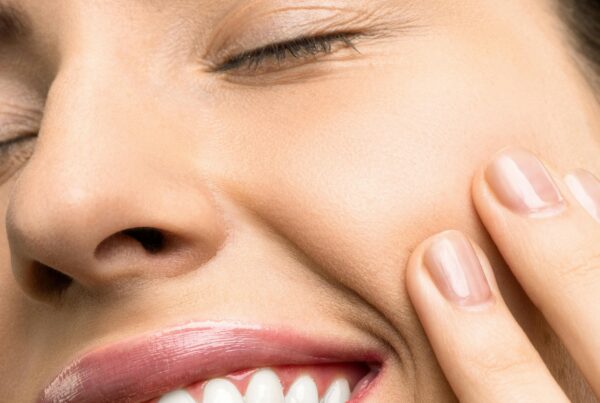The skin. It’s the largest organ on the body, and the billion-dollar industry catered to how it takes care of it continues to grow every year. That said, how much do we actually know about the flesh that we wear?
Skincare can be tricky, especially in a world where we’re bombarded with commercials and Instagram posts that claim to hide the secret to perfect and flawless skin. It can be hard to know who to listen to and how to separate skin fact from skin fiction. Thankfully, this is exactly why Wellness Wednesday was created. A weekly Instagram interview series hosted by the founder of the World of Longevity, Gisèle Wertheim Aymés, Wellness Wednesday is the perfect tool to help you achieve healthier skin.
Dr. Sian Hartshorne: The Journey To Healthier Skin
Dr. Sian Hartshorne is one of the top dermatologists in South Africa, and she has been a specialist for over a decade. Dr. Hartshorne is currently president of the SASDS (South African Society for Dermatologic Surgery). She is also a board member of the DSSA (Dermatology Society of South Africa) and the AWDS (African Women’s Dermatology Society).
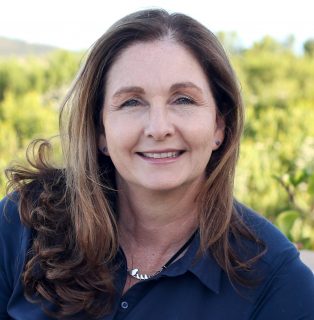 “The skin is one of the few organs that’s constantly regenerating itself.” says Dr. Hartshorne,
“The skin is one of the few organs that’s constantly regenerating itself.” says Dr. Hartshorne,
“When we’re born, we’re basically born with ‘brand-new skin’. Unfortunately, like any machine that’s working, eventually, things start to slow down. The first thing we see is the production of collagen, type 1 and type 3 collagen, starts to slow down its regeneration, especially as we reach our 30s and 40s.”
Dr. Hartshorne adds that if you have not experienced any real environmental exposure, such as harsh sun, by your 70s and 80s, then you’ll be left with much thinner and slack skin because the firmness of the skin essentially disintegrates.
What causes aging skin?
One word: photodamage.
Dr. Hartshorne adds that other factors that play a lesser role, but still an important role in causing aging, include hormones, smoking, diseases, and disorders as well as stress.
How to combat aging?
Moisturize
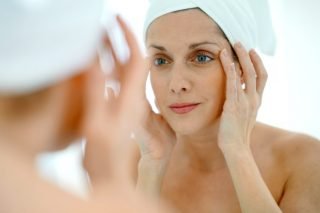
goodluz/shutterstock
“The starting point of aging is that our skins usually become dry” shares Dr. Hartshorne, thus the first anti-aging step would be to maintain the level of moisture on your skin. She also advises that you avoid harsh cleansers or exfoliators and that you invest in a really good moisturizer.
Retinoids
The next ingredient that she would recommend is a topical retinoid, as these have been scientifically proven to help encourage the production of collagen. That said, topical retinoids can irritate the skin, but Dr. Hartshorne says that the skin can get used to topical retinoids.
Fruit acids
“Your next big group are your fruit acids – your glycolic and alpha-hydroxy acids,” says Dr. Hartshorne, who also adds that these are the same ingredients used during face peels.
Vitamins
Dr. Hartshorne is a huge fan of vitamin C, and she adds that combining vitamins C and E can provide an anti-aging and photoprotective effect.
Get a good sunscreen
If your budget is a little tight, Dr. Hartshorne recommends getting a good sunscreen that has ‘everything in them’. They contain moisturizing, antioxidant, and anti-aging properties.
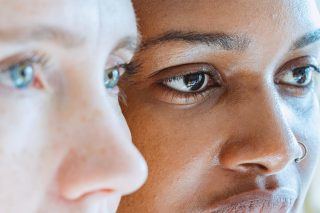
Photo by Angela Roma from Pexels
Suncare concerns
Unfortunately, those with darker skin tones may not take the importance of sun care and protection seriously, believing it to be a problem for individuals with fair skin. However, this couldn’t be further from the truth.
“Although UVA lighting causes aging in lighter and fairer skin, sun and light can still create pigmentation in individuals who have darker skin tones,” says Dr. Hartshorne, who also says that pigmentation is becoming universally a massive area of concern, especially because it can be quite difficult to treat. She adds that sun protection really is the first line of protection when it comes to preventing pigmentation.
Acne woes
According to a study published in the Journal of Applied Psychology, people with facial disfigurements such as scars or birthmarks are likely to be rated lower in job interviews than those who have none.
“The quality of life and the ability to function normally without worrying about your skin is really important”
Why do we get acne?
According to Dr. Hartshorne, it’s usually genetic, but the second reason could also be product use.
“We’re using a lot more products, so we need to be careful of using products that may be too oily for oily skin,” explains Dr. Hartshorne, “You can get cosmetic-induced acne and this is easier to manage.”
Lastly, hormones can also play a role in why people, mostly women, get acne.
How can we treat acne?
Dr. Hartshorne always advocates for a well-balanced and healthy diet because a high GI diet can trigger the oil glands in the body, and this can play a role in the formation of acne. That said, people who follow healthy diets, exercise regularly, and use amazing skincare products can still suffer from acne.
In regards to treatment plans for acne, Dr. Hartshorne reminds us that treatment is not super quick and that it may take 3-6 months for you to see results. Additionally, Dr. Hartshorne shares that if you’re using products, and you start to develop a pimple or two, then stop using the products immediately as not doing so can worsen your skin.
Inflammatory skin disorders
Over the last few years, we have had a whole host of new biological medications that have come out to help address inflammatory diseases like psoriasis, eczema, and rheumatoid arthritis. Sadly, they are quite expensive and not necessarily accessible to everybody.
Treatment options
“Once you have an inflammatory skin disorder, you’ll never be 100% clear, but we want you to have a better quality of life and to manage the skin better,” says Dr. Hartshorne. She adds that lifestyle plays a massive role in the management of psoriasis, and habits like drinking alcohol and smoking could make the condition worse.
The clone wars
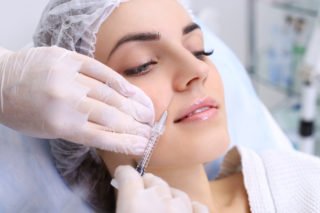
Kovalchynskyy Mykola/Shutterstock
“We’re seeing clones walking around, and those fillers are overdone with their lovely big cheeks, huge lips, and very deadpan foreheads.”
Dr. Hartshorne prefers facial peels, lasers, and microneedling, sharing that she loves Botox for ‘the frown’.
“I’ve termed my treatment the ‘mini-botox’ because it’s reduced doses with fewer injections but enough just to soften the movement but to take away the movement altogether”
The collagen boom
“I started taking collagen four or five years ago because I was suffering from stress-related hair and I certainly felt a difference”
Dr. Hartshorne does remind us that collagen is a massive molecule and that when you take it, you’re depositing it directly into your skin. Rather, when you take it, it will break down into building blocks, and it will then enter your system.

Syda Productions/Shutterstock
“You’re preloading your system with the proteins that your body needs to build your joints, skin, nails, and hair”.
Buying collagen
As there’s a clear collagen boom, it’s important to make sure that you’re buying the right product.
Dr. Hartshorne advises that you do your research and that you always double-check with your doctor.
The bottom line
“People differ as well as skin types, and there isn’t one package that suits everyone. I like to keep it simple and I recommend that you do the same for your skincare routine….A baseline that everyone should be using is sunscreen and this applies to everyone.”
References
Madera, J. M., & Hebl, M. R. (2012). Discrimination against facially stigmatized applicants in interviews: an eye-tracking and face-to-face investigation. The Journal of applied psychology, 97(2), 317–330. https://doi.org/10.1037/a0025799
WATCH THE INTERVIEW
The video interview with Dr. Sian contains the entire dialogue of this interview, and you can watch it below
View this post on Instagram


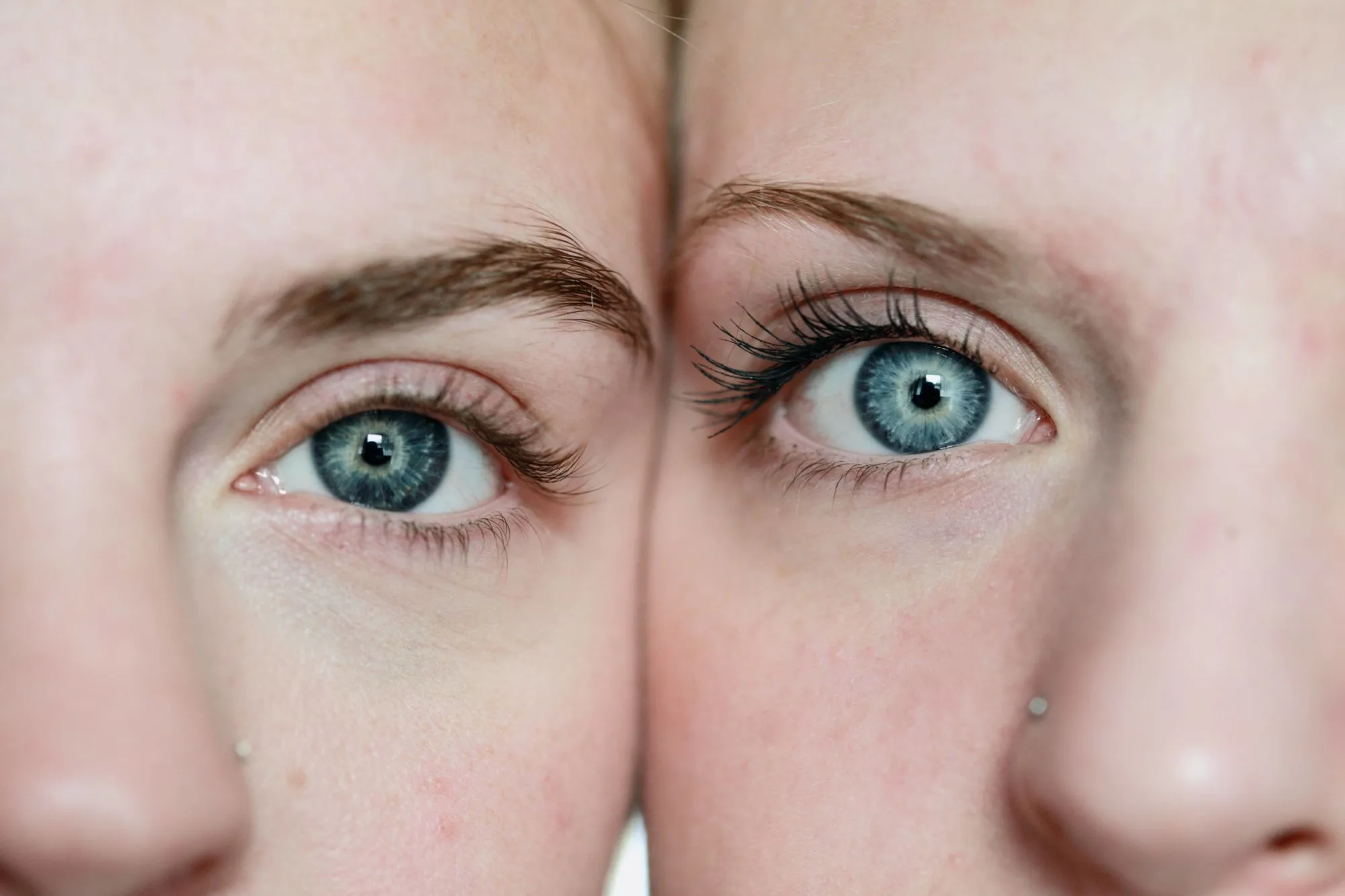
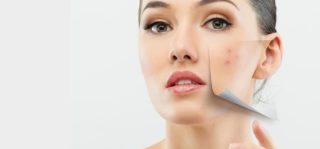 “The quality of life and the ability to function normally without worrying about your skin is really important”
“The quality of life and the ability to function normally without worrying about your skin is really important”![women [longevity live]](https://longevitylive.com/wp-content/uploads/2020/01/photo-of-women-walking-down-the-street-1116984-100x100.jpg)







